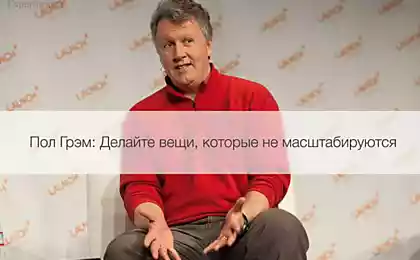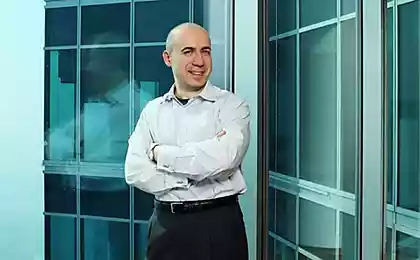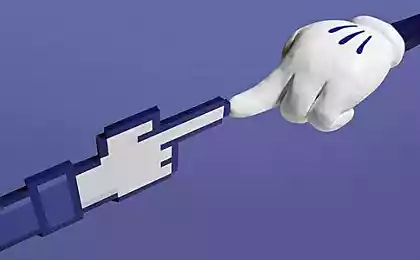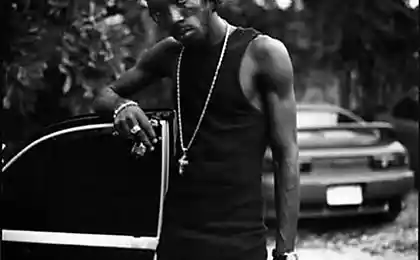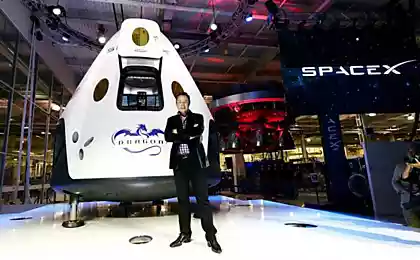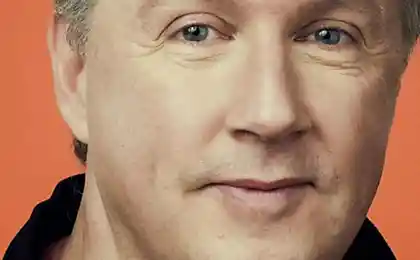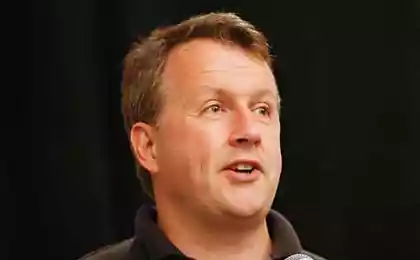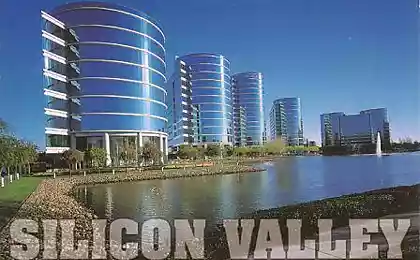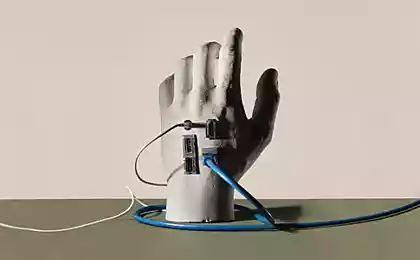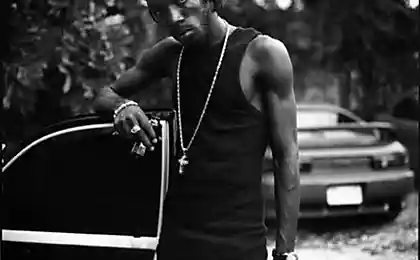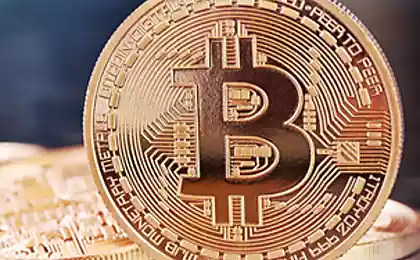1921
As "mafia PayPal» affect the success of Silicon Valley
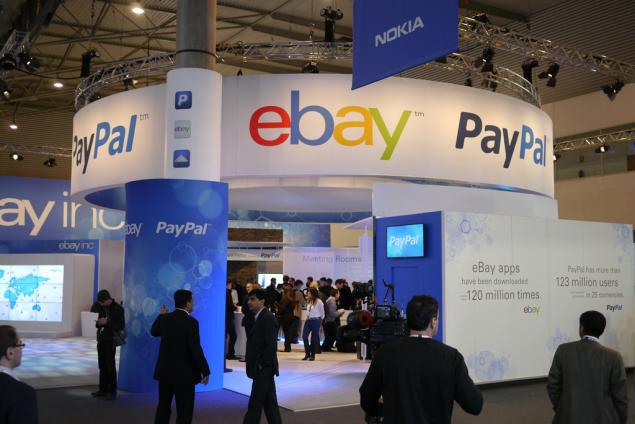
Today we would like to share with you a translation of an article Conner Forrest «How" mafia PayPal »affect the success of Silicon Valley» - The author talked about the leader of the project, the reasons why they had to leave the company after the merger with eBay, as well as on how the principles of PayPal influenced the development and future of Silicon Valley.
Publication seemed to us very interesting and relevant, and former leaders expressed PayPal ideas came upon the idea of the principles on which to base projects really need, and what qualities should have сильные leaders in the field of IT , that despite leaving the company to continue to grow and achieve no less successful.
We hope you get as much pleasure from reading the article, as we are. I>
"Mafia PayPal» - this is not the Mafia. This diaspora.
"In essence, we were driven to our native land, and they burned our church to the ground. So we were scattered to the four globe, and we had to build new homes ».
So it is described by David Sacks, former COO PayPal and CEO Yammer. Ominous "they" in this story - is eBay, and eBay is partially responsible for the success as PayPal, and for the fact that its creators have moved away from him.
Rarely happens is that the startup continues to develop until the end of its existence. Even rarer for a startup give about a billion dollars. And even more unusual that going out of business is becoming a catalyst for the local economy, and a special type of investment.
Despite the enormous difficulties, this is what happened when the company eBay bought PayPal in the summer of 2002, and the last members of the team left to create one of the most important start-ups and make one of the most important strategic investment of all time.
Mafia PayPal- term used in Silicon Valley with love and awe to the team PayPal from Mountain View to the first public offering of shares to investors (IPO) or to the sale of the company - each founder will give you my definition. Although it is in principle in the different stages of life, but the time difference between them is only a few months. According to former CEO Peter Thiel, PayPal, Mafia PayPal - it's about 220 people. It does not include the 700 people included in the customer service department, who worked at the time in Nebraska in Omaha.
This group of 220 people has created seven separate "companies unicorns." Unicorns - these are companies that are estimated at more than a billion dollars. Two of these companies were valued at about $ 10 billion. These are the following companies:
1. Tesla Motors - with a market capitalization of $ 27.5 billion
2. LinkedIn - with a market capitalization of $ 20.4 billion
3. Palantir - worth $ 9 billion (a private company, the approximate count)
4. SpaceX - worth $ 7 billion (a private company, the approximate count)
5. Yelp - with a market capitalization of $ 5.26 billion
6. YouTube - $ 1.65 billion
7. Yammer - $ 1.2 billion
In comparison, Google had to work around 20 or 30 thousand employees. Of those few who created the company unicorns (1-3), and even more so no one came close to the figure of the company value of $ 10 billion.
This means that PayPal was 3, 5-fold more in the development of large rezultativen companies 1/100 individuals in comparison with Google. In other words, employees PayPal were 350 times more successful employees Google.
What is the secret of PayPal?
The first steps
Peter Thiel, Max Levchin and Luke Nozek in late 1998 created a company Confinity (original name - FieldLink, Inc.). Levchin and Thiel met at Stanford University after Thiel in a guest lecture delivered there. They started working together on the concept of an electronic purse. At first, the company specialized in mobile payments sent from Palm Pilots and other handheld computers, but then came up with a way to Confinity employee remittances via email. In 1999, this service was called PayPal.
Having acquired some fame and received initial experience with the platform eBay, Confinity went through the process merger with X.com Elon Max and took over the name of the parent company. As a result, the company has proven its success and popularity, and the summer of 2001 changed its name to PayPal, Inc.
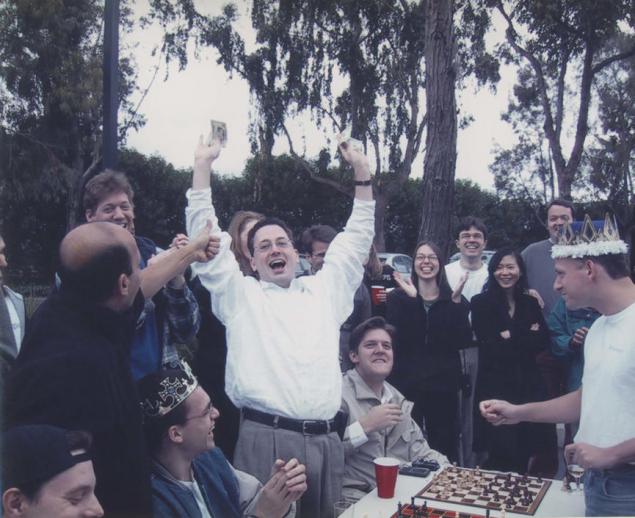
In the photo - a celebration on the release of the company's IPO. Right - Peter Thiel, who plays chess with numerous employees PayPal. David Sacks (center) was the one who beat him.
Photo: David Sacks (PayPal) i>
The early history of PayPal was unique in many ways, especially thanks to the people behind it.
"When we started, I remember one of the early conversations with Max (Levchin). I told him that I wanted to build a company where everyone will be good friends, and this friendship will remain, no matter what happens in the future with the company, "- told Peter Thiel, the former CEO of PayPal. "It was, in a sense, a utopia. We took not only friends at work, but also the people with whom we thought we could be friends. "
Friendships with many of them started at Stanford. Ken Howery, Reid Hoffman, David O. Sacks, Kate slave - they all attended Stanford about the same time and were subsequently hired Peter Thiel with PayPal. In addition, Max Levchin hired several developers and their former classmates at the University of Illinois at Urbana-Champaign.
The situation was unique in that the majority of the first employees of PayPal, and in general terms the "Mafia PayPal», were recruited not by HR, and thanks to friendly relations. As Sacks said, these people were made "from the same cloth." According to him, this explains the strong entrepreneurial spirit that was in them.
However, first-class team is not saved by PayPal problems. In fact, the history of the company and the success of its employees partly just associated with certain problems and how they solved the team at an early stage. In particular, the company was faced with significant challenges such as:
• attracting new customers;
• problems with the authorities;
• competition with eBay;
• fraud;
• hostility from Mastercard and Visa.
"You could say we had to deal with all the problems that are usually stumble upon start-ups, so our people gained experience of their decision," - said Thiel. "To cope with them was not so easy, but we did it».
These problems put pressure on the team, and she had to respond to this pressure. Team PayPal is not allowed that pressure to break it, but use it as an incentive to maintain the "maniacal persistence," as he called Kate servant, former Executive Vice President of Business Development.
"The atmosphere in which we found to be very intense, so that the time and energy to think about the future no choice; all forces had to be sent out to defend our "ship" and to keep it afloat, "- said the servant.
Due to this pressure, the light appeared diamonds. According to Sacks, a PayPal were first introduced many of the features and capabilities that today for new start-ups are common. PayPal was one of the first companies to:
1. Implemented tactics virus application. When users of PayPal sent money to someone who did not have an account, it thereby stimulated to have an account to get your money.
2. Use the embedded vitzhety. Users can add a button to pay with PayPal logo in your profile online auction eBay. Later embedded content has become a key to YouTube and largely stimulated its growth.
3. Use a platform strategy. According to Sacks, PayPal was actually "application, based on eBay».
4. One of the first companies who used an iterative strategy. New features were implemented as soon as work on them was completed, regardless of the phase of product development.
Corporate culture PayPal was also special. Slave described her as "confrontational" and said that the ideas about the development of the company dealt with in the reasoned debate.
Leaders from the rarely taken in the company. Instead received increasing existing employees, and often led the department to get up its leading member. For example, all the designers were accountable to the master designer who was considered the best. Candidates for positions with the newly acquired MBA degree often were denied, because they were not flexible enough to work in an iterative strategy (what really should be ready at the time of this training, you can read здесь).
"I think in many ways PayPal has become an example for today's start-ups in Silicon Valley" - said Sacks.
For example, the first highly questionable social network Facebook developers motto was "Be quick and destroy everything in its path." As can be seen in the future concept of iterative strategy and maneuverability spread throughout Silicon Valley and has become the norm for startups.
While many of the above practices now seem commonplace, it is important to remember that 15 years ago, Silicon Valley was quite different. According to the servant, he often has to deal with people who believe that Silicon Valley has always been as it is now.
"It is important to emphasize, because I think many young people and beginners do not realize how far from the traditions we were in those days," - said the servant. "We were a handful of freaks. We were further away from the essence of Silicon Valley than you - culturally, ideologically - no connection. And what is really interesting is how we, as initially full outcasts, in a short time became "friends" in Silicon Valley ».
Largely PayPal - definitely a product of "dotcom bubble." There was a period when the average monthly expenses of the company jumped to $ 10 million. However, the method of management of the company and do business in PayPal was something unprecedented in Silicon Valley.
Team PayPal used to do things his own way, and it paid off when, in late 2001, she managed to get out on the initial public offering and finish it in February 2002. According to the data from the site PayPal, in the first day's share price has increased by more than 54% and the end of trading the shares were sold for 20.09 dollars.
Then in June 2002, eBay users have come to a user conference in T-shirts PayPal, demonstrating support for this merger PayPal and eBay. A month later, in July 2002, the company PayPal has agreed to sell a majority stake in eBay, and the deal was closed in the same year.
«Baptism of Fire»
"I remember sitting in a meeting about the integration with eBay», - said the servant. "And here we sit, trying to decide how to combine the commands and how to prioritize. And then there is the command eBay with 137-page presentation of PowerPoint. And slide at, they began to show it to David Sacks, me and a couple of our colleagues. "
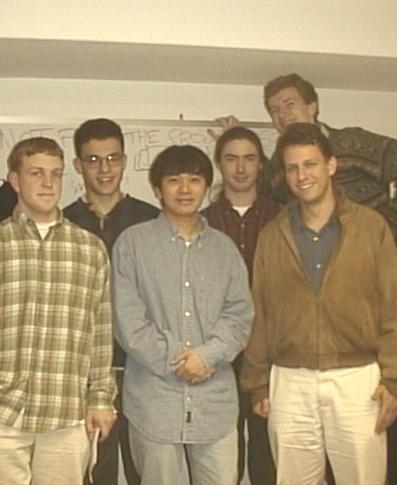
Six founders of PayPal
Photo: Max Levchin i>
"I remember thinking, when the meeting that it would not work." David [Sax] immediately began to flip through the slides ahead 20-30, and eBay team members feel uncomfortable due to the fact that someone does not want to listen to their story on each slide for three hours. In the history of PayPal has never been a three-hour meetings, and then they started meeting on integration with a three-hour block. "
"When we went to the meeting, David Sacks turned to me and said:" If we stay here, you have to create a whole team to work with PowerPoint, because the only way to communicate with these people ", - said the servant.
This was the beginning of corporate relations with eBay, which began and ended with intense mutual discontent, when almost all members of the team went in again PayPal independent swimming.
According to Sacks, founder of eBay in particular and did not try to hold it. PayPal team from the very beginning felt that eBay liked their product, but in themselves, the so-called "losers" from Silicon Valley, not needed.
"Before the transaction PayPal competed with eBay a few years, and we have won them from their own platform, and it's not so easy," - said Sacks. "We felt able to win for the reason that their decision-making process was too bureaucratic and slow. I think that's why from the very beginning was present feeling strong mismatch corporate cultures. "
If they knew it would not work, why do they have given the company in the hands of eBay?
They sold the company since felt that it should be done. As told Sacks, when the company eBay bought PayPal, somewhere 2/3 PayPal transactions were made on eBay. Battle won PayPal, but their situation was unfavorable. This is partly motivated team and PayPal to act in a new way.
Thanks to eBay PayPal was in a difficult position. The appearance of the product platform PayPal on eBay a few years earlier was a sensation, and then eBay began competing with them. PayPal Team fought for his life, since, according to Sacks, eBay has always had a better chance at the championship.
PayPal was subjected to a test of strength and had to adapt. eBay was large and sluggishness, so PayPal had to be small and maneuverable. It is here that came in handy iterative model. PayPal team had to be creative, discard broken processes and functions and at the same time seek an approach that really works. PayPal could not compete with eBay for some of the resources and scale, so I had to bet on speed and agility.
But the company that made PayPal evolve, eventually expelled mafia PayPal.
"I think the main irony in this story is that even if eBay was not as" clumsy, "I'm not sure that PayPal could have won," - says Sacks. "If culture PayPal and eBay perfect match, they could beat us. If they were as flexible and spontaneous as we are, it would be a big problem. We managed to cope with such a clumsy bureaucratic heavyweight, and it was wonderful, but largely for the same reason, our people did not want to stay there. "
If PayPal Mafia had to stay in eBay, is unknown whether they were able to create something new. The desire to prove something good for the entrepreneur, and everyone on the team wanted to prove something, especially after retiring from eBay. Sacks has compared this experience with the "baptism of fire".
"I believe the baptism of fire tempered steel," - says Sacks. "The fire burned defects and remains the most effective approach to start-ups, which could later be replicated many times».
The Losers from Silicon Valley
Losers from Silicon Valley managed to crack the code of success. They have created and developed a product valued at 1, 5 billion, but that it was not enough.
"There is always a level, reaching that many successful entrepreneurs believe they can continue to do great things, but also feel the disbelief of people in what they are capable of it, and feel the need to prove it. You both have a sense of superiority and inferiority complex ", - explained Thiel.
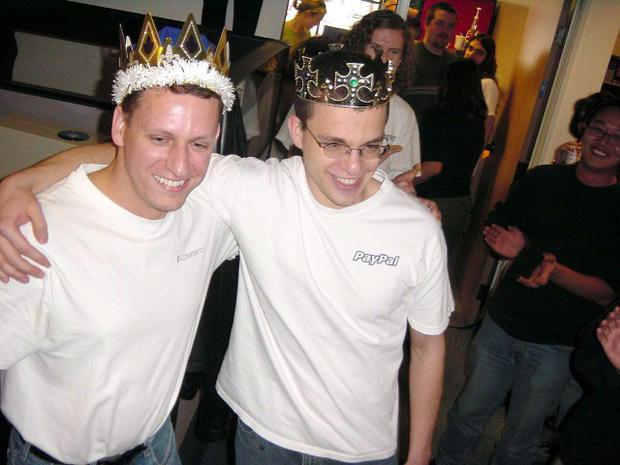
Max Levchin and Peter Thiel celebrate public offering PayPal.
Photo: Max Levchin i>
Of course, all this crazy vanity with eBay and challenge consisted in disbelief in the ability PayPal realize their full potential as an independent company, partly spurred them. But, in fact, this group of innovators has managed to create a successful product, and then lost it. If you have been an entrepreneur, what you would do when they had to leave that created?
You would create something else.
"In the case of PayPal, in fact, there was a mass exodus of highly enterprising people who owned technology, were able to innovate and create a new explosion of the product in a time when everyone else has given up," - said Sacks.
PayPal Mafia is often perceived as a "network" of people, but not til sure that the achievements of PayPal be attributed to this.
"I prefer the word" network "word" friendship "and I think it played a key role deep friendly relations that existed between us. And this is something that is underestimated in the modern world "- says Thiel.
Culture PayPal confronted the fact that the relationship between the employees were purely business. Developing and maintaining true friendship, PayPal mafia members could be interested in the success of each other and support each other in an effort to change the world.
According to Thiel, say that they were all such good friends, it would be an exaggeration. However, strong ties were formed, which led to the creation and development of the majority of companies unicorns after PayPal. In particular, some friendships have continued in the new companies:
1. Mark Vulvey and David Sacks, Yammer
company 2. Russell Simmons and Jeremy Stoppelman company Yelp
3. Steve Chen and Chad Hurley, YouTube
company 4. A number of former employees of PayPal, including Reid Hoffman, LinkedIn
company 5. A number of former employees of PayPal, Peter Thiel including company Palantir
href="http://blog.mbaconsult.ru/blog/karera/pjaterka-naibolee-perspektivnyh-napravlenij-v-sfere-IT/?utm_source=habr&utm_medium=article&utm_campaign=01-12">пятерку
Source: habrahabr.ru/company/mbaconsult/blog/244611/
